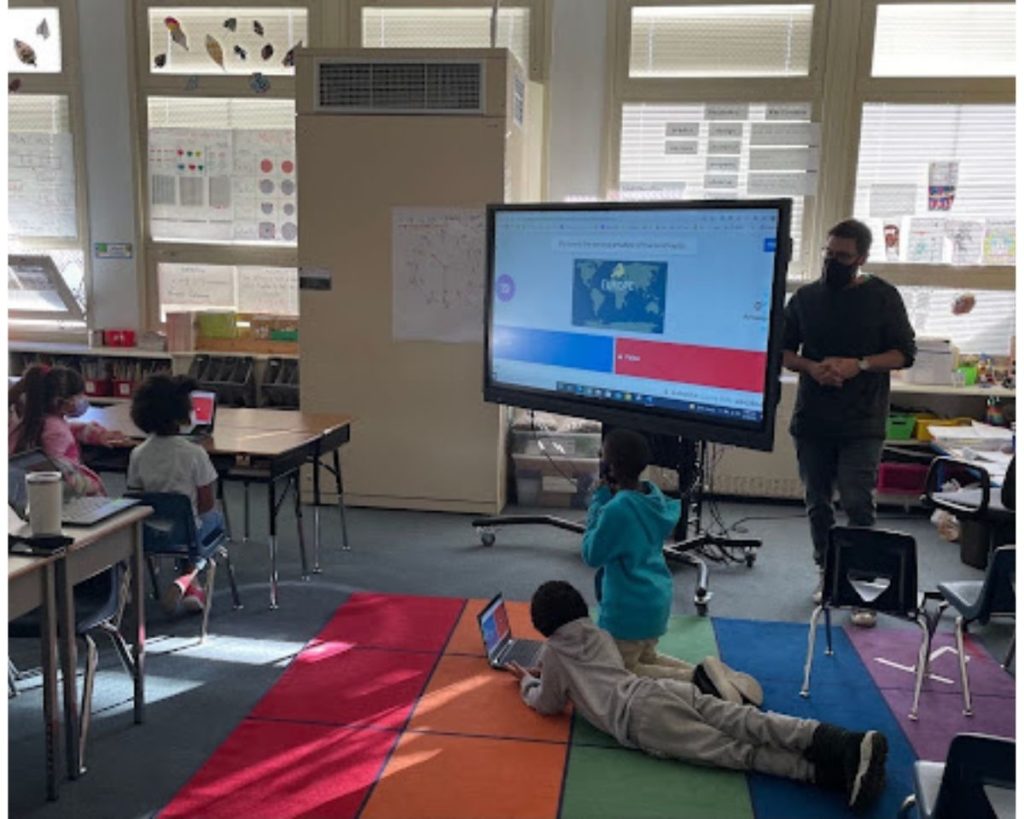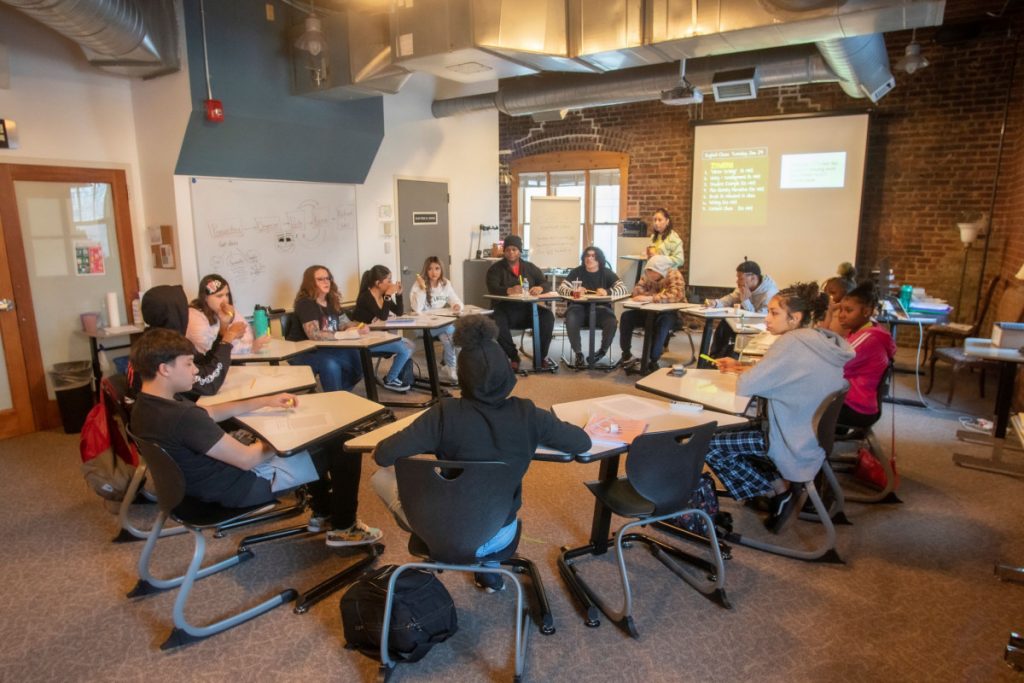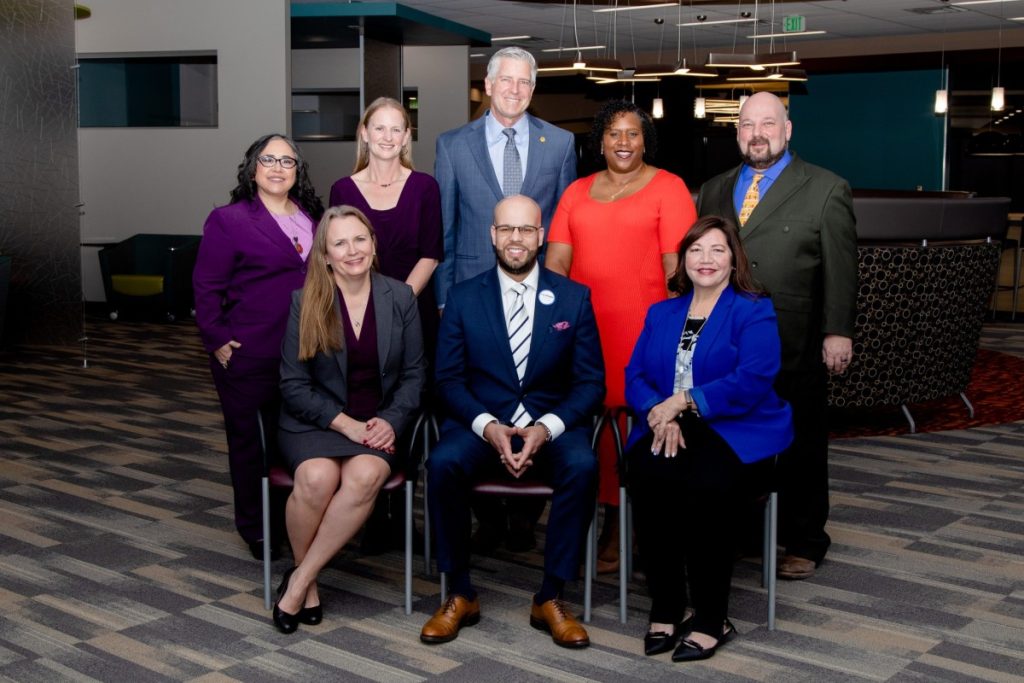The Denver Public Schools Board of Education looks set on voting Thursday to curtail the freedom of the district’s 52 innovation schools.
While the board took guidance from Superintendent Alex Marrero during a work session Monday evening to simplify what had been a convoluted and confusing set of policy proposals, it all boils down to one key issue. If the board votes as expected, innovation schools, with very few possible exceptions, will no longer be able to receive waivers from the district’s collective bargaining agreement with its teachers union.
That would undercut one of the key pillars of the 2008 Innovation Schools Act.
The one exception proposed would be for low-performing innovation schools that are in danger of becoming eligible for state takeover or, heaven forbid, conversion to a charter school. The superintendent could recommend to the board that those troubled innovation schools be granted otherwise forbidden waivers
Simplified or not, the bottom line – curtailing the freedoms of innovation schools – remains the same. It’s a bad idea, and a classic case of a solution in search of a problem.
Under the 2008 law, innovation schools are supposed to be freed from some of the constraints of state and local regulations and collective bargaining agreements, allowing them to craft programs and approaches tailored to the needs of their student bodies.
The board killed one clearly nonsensical proposal, which would have required all innovation and traditional, district-run schools to operate on identical calendars. It also chopped away superfluous sections that seemed to micromanage the superintendent needlessly. Those were easy lambs to sacrifice on the altar of what proponents call teacher rights.
Ask teachers in innovation schools and most will tell you that they have rights and do not feel exploited. Even if this proposal did not originate with the Denver Classroom Teachers Association, it’s clearly a move by at least some board members to appease the union, not protect teachers.
In op-ed columns I published on Boardhawk in recent days, parents and school leaders alike railed against the board’s move against innovation, asking where it originated and why anyone thought it was necessary.
Here are a couple of choice passages from the op-eds. First, from innovation schools parents:
“Innovation schools do not deny teachers their rights – quite the contrary. Teachers in innovation schools feel empowered to be the true professionals the best teachers aspire to be…Innovation plans, in fact, empower teachers more directly and meaningfully than a group of a dozen Denver Classroom Teachers Association representatives – all of whom, by the way, are white – could ever hope to do while negotiating a new collective bargaining agreement with Denver Public Schools.”
And from innovation school leaders Leah Schultz-Bartlett and Frank Coyne:
“It’s hard to imagine that after two years of enduring the endless challenges of this pandemic we as school leaders find ourselves fighting to defend our school models…In the best-case scenario, this EL is about using the same tactics overplayed by so many previous administrations that have systematically ignored process and community as they dictate what we need. In the worst-case scenario, this EL is a wolf in sheep’s clothing that seeks to establish a loophole approach to attacking innovation as a model.”
(As a very sad side-note, Coyne announced last month that he is leaving his job of 13 years at the end of this school year, in part because he is weary of fighting to protect innovation status when schools have so many more pressing needs. The Denver Green School, where Coyne is a ‘lead partner,’ has a collaborative leadership structure and, thanks to its innovation status, is run entirely by teachers. Ironic, eh?)
I’m sure at least some DPS board members read these pieces. And they’ve heard an earful during public forums from innovation school parents, teachers, and leaders. Sentiment certainly appears to fall strongly on the side of leaving innovation schools alone.
But that’s not what board members intend to do. Scott Baldermann, one of two board members who crafted the proposed policies, said Monday that if innovation school leaders have concerns about the loss of union agreement waivers, they can work with Superintendent Alex Marrero and the Denver Classroom Teachers Association to get them inserted into the union contract.
“How can we actually make this part of the master agreement so it’s available to every school, so we get away from the waiver mentality?” Baldermann asked.
That’s a sweet and naive idea. But the reason the legislature passed the innovation law in the first place was because schools felt they had no room to get creative, constrained by district red tape and the rigidity of union contracts. There’s little reason to believe that the DCTA would have any motivation to negotiate away what it just won back.
Board members talked a great deal Monday evening about how important it is to be clear in its direction and to be seen as receptive to community input.
But a bit of fancy footwork to simplify a proposal doesn’t make the proposal any better. Nor does it address the concerns expressed by innovation school leaders and teachers that the freedoms that make their schools unique are being stripped away.
By making this move, the board risks standardizing mediocrity and disincentivizing educators who want to try new and creative approaches.
Why? No one has satisfactorily answered that question.




